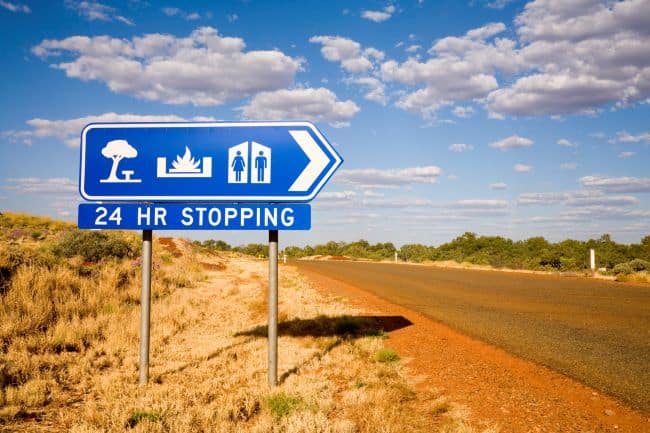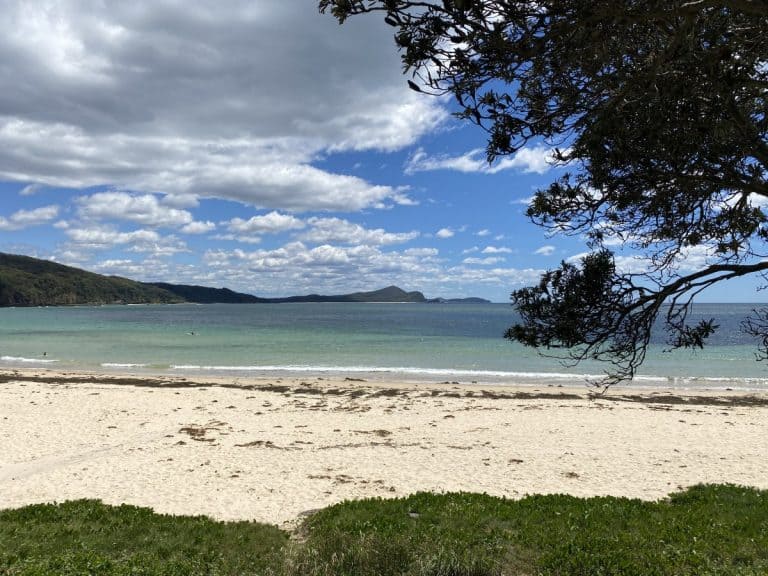What Is Free Camping?
For some camping can be just an occasional activity or something to be tried once just for the experience. However, there are some real fans of camping and caravanning who like to explore all the options that come with camping, such as free or dispersed camping. So, what actually is free camping, and is this kind of activity legal around the world?
Free camping when you spend time camping in a particular area using limited or no camping amenities at all. As the name suggests, this type of camping is free, meaning you do not pay any fees. However, you have to find a place that considers this kind of activity legal.
If you are wanting to try camping where you will be completely in nature without any amenities, then free camping is the way to go. However, before you embark on such an adventure, you need to know what exactly this means, where you can enjoy this kind of activity, and how to find the perfect spots. This article is designed to give you all the guidelines before you decide to step outside the comfort of organised, powered camping.
What Does Free Camping Mean?
Free camping means exactly what its name suggests it is – an area where you do all of your camping activities using a limited number of amenities, or no amenities at all. This also means that a lot of the time you do not have to pay any camping fees since the area where you are is completely free of charge.
However, in order to better understand the notion of free camping, it is wise to determine what it covers. For instance, when you go regular camping on a campsite, you probably need to make some kind of booking, or at least contact the camp host. Free camping generally doesn’t include this kind of requirement since you find a camping place on your own, meaning there is no need for any type of reservation or booking.
In addition, when you go to a regular camping spot, you will most likely encounter other campers, especially if you go to a camping area with all amenities included. Free camping spots can be out of the way where no people are usually present. Of course, you can always find the opposite, especially in places near the beach or popular tourist landmarks, as people try to find cheaper spots.
Most free camping spots in Australia are on public land or campsites specifically designed for short stays. A lot you will find on the just off highways but some are also quite remote. Free camping does not provide the same coziness as a campsite does and you need to remember that you will need to be self contained with things like water and waste. So make sure you are ready for this kind of experience because it is totally different from mainstream camping.
There are a lot of pros and cons to free camping, and you should be aware of them before you set off. You will save a lot of money on site fees and you have a wide choice of places. On the other hand, you really need to have a full camping setup, and it might be a little hard to find the right spot.
Is Free Camping Legal In Australia?
Australia is known as a country that is worth exploring. With such amazing wildlife and wilderness, it is a dream come true for every adventurer. Considering the fact that Australia is commonly referred to as the land down under, a nickname that characterizes its great distance from the other continents, it is the perfect place to satisfy the curious mind.
A lot of people think that you can just grab a caravan or camper and pull up wherever you want and stay for the night. However, even though free camping is legal in Australia, that does not mean that you can do it anywhere. There are specifically designated areas that have been made for camping. A lot of these are free of charge or require some kind of a symbolic fee. It is important to bear in mind that if you do not follow these rules, your free camping might turn out to be a very expensive trip in fines.
Councils are generally quite strict about their natural areas, so they will not cut you slack at all. However, if you do a little research, you might notice that these rules are not always well advertised, so you might end up confused about where you are allowed to do your free camping adventure.
Campsites near or on the side of highways are generally only available to caravans and campers that are self contained and are only available for one or two nights. They are designed for overnight stops to come off the road for a bit and get some rest on your way to your destination. There will most likely be a sign stating this rule, so do not plan anything for longer than a night.
You can also find plenty of other free camping spots around this beautiful country of ours that are not on a highway and some of them in such amazing places or with magical views. For example, Bunda Cliffs on the Nullarbor is one of the most spectacular free camps available.

If you are going to go looking for a free camp, make sure that you inform yourself about a particular area before you decide to free camp there. Ensure that you check for signs allowing you to camp somewhere (or not). It is better to be safe and 100% sure, than to be fined and left without money.
How Do I Find Free Camping Spots?
When it comes to finding the best free camping spots, you might come across a few difficulties and tricky searches on the internet. If you browse online, you will see that you have a lot of opportunities and options, but none of them seems to give a clear indication of which ones are suitable for free camping. That is why it is a good idea to have a few tried and tested places of information before you decide to hit the road towards a particular camping area.
If you are travelling around and looking for a place to stop, a good first step is the tourist information centre in towns. If they are manned, they can give you accurate information about free camping areas. This way you won’t wander around worrying whether you are in a legal area or not. If they are not manned and are just a few signs, they will usually still have a map of the local area and some information about camping areas.
For free camping, you do not usually need any permits or permission. However, it is always wise to inquire or research about the rules and regulations in a particular camping area. Getting more information about a free camping space will make you safer, and confident that you know exactly what you are doing.
Even though might not need permits or payments, some areas might require some kind of registration or booking. For example a lot of National Parks have brought in booking requirements, even for their free campsites, and you may need to purchase entry fee to the park, even if it is free to camp. You might also find some areas get visited by local rangers checking on the area and that campers are obeying the restrictions. So ensure you are obeying any signs or restrictions, especially in regards to fires, animals and self-contained restrictions.
Using Apps And Maps For Finding Free Camping Spots
Sometimes you want to plan ahead, and not wait until you hit the closest town or information station to find free camps. Luckily, there are online apps and maps that might make your search easier and more convenient.
Wikicamps is a great app that list a multitude of camping spots, including free camps, paid campsites and caravan parks. You can find our detailed review of Wikicamps here, but
it includes information about each campsite including whether pets are allowed, if there is a cost, any amenities available and if you are allowed a tent, camper or caravan. It even offer reviews by people who have stayed there.
If you are looking for books, Camps Australia Wide is a great guide with over 5000 free and low cost camping sites. They also have an app available for you to go searching for your ideal spot.
Free Camps Australia also has a vast selection of free and low cost camps and points of interest. Both books include maps so you can explore and plan your trip.
If you have the camping set up to make it possible, don’t hesitate to try free camping. You know what you should do, you just have to accept the challenge to experience new adventures.







